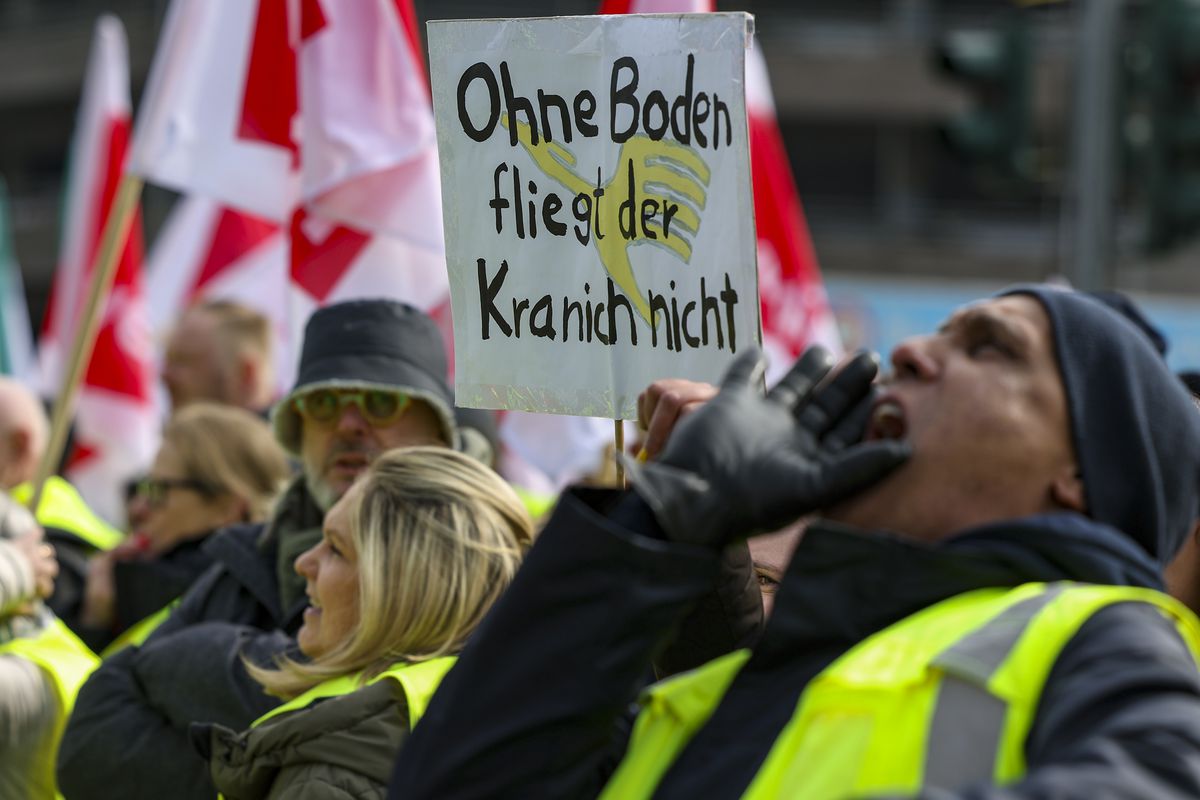Enlarge image
Striking train drivers last week in Munich: On average, unions recently demanded between 4 and 5.3 percent more wages - with a twelve-month term
Photo:
Sachelle Babbar / imago images / ZUMA Wire
Nationwide, the wage dispute between train drivers and Deutsche Bahn is currently escalating, at least in Berlin and Brandenburg consumers could feel the effects of a warning strike in retail today.According to the Ver.di union, Rewe, Kaufland, Ikea, Galeria Karstadt Kaufhof and Hennes, among others, are affected & Mauritz.
According to a report by the Institut der Deutschen Wirtschaft (IW), such disputes between employers and trade unions were much more intense in the first few months of this year than in the previous year.
"The willingness to conflict has noticeably increased in the first half of 2021," it says.
After cautious collective bargaining in the first Corona year of 2020, wage developments had returned to the focus of collective bargaining in 2021.
Corona reluctance is being discarded
The wage demands of the unions were between 4 and 5.3 percent over a period of twelve months.
"The focus was and is now more on how the performance of employees during the pandemic can be appropriately rewarded," it continues.
However, since the various industries were affected differently by the pandemic, "tensions arise above all where companies point out their poor economic situation, but the unions are no longer willing to cut wages."
However, according to the report of the employer-related research institute, the trade unions were "rather cautious" with regard to the collective bargaining agreements themselves.
Many employee associations foregoing percentage salary increases and instead accepted corona bonuses, some of which will not be paid until 2022.
Inflation drives wage demands
For the remainder of the year, the IW experts do not expect any relaxation: The situation in the collective bargaining of the union of German locomotive drivers with the railroad has bogged down, as is the case in retail and banking.
Collective bargaining in the public sector also harbors potential for conflict.
In view of the high rate of inflation, employees can still expect higher wage demands.
"This means that the trend of increasing willingness to conflict, which was observed in the first half of the year, is likely to continue in the second half of 2021," explained the experts.
As part of its "conflict monitoring", the IW analyzed 14 central collective bargaining negotiations in the first half of 2021. The survey regularly evaluates collective bargaining in 20 sectors from all areas of the economy.
The conflict intensity - calculated by the IW from various escalation levels such as strike announcements, strike votes and warning strikes - reached a score of 8.4 in the first half of 2021 and thus almost the long-term average for the years 2005 to 2020 (nine points).
In 2020, the average conflict intensity was only 2.3 points, as the trade unions had focused in particular on securing jobs in the context of the corona pandemic.
In 2019, the last year before the corona pandemic, the conflict intensity was 10.3 points, according to IW.
apr / AFP









